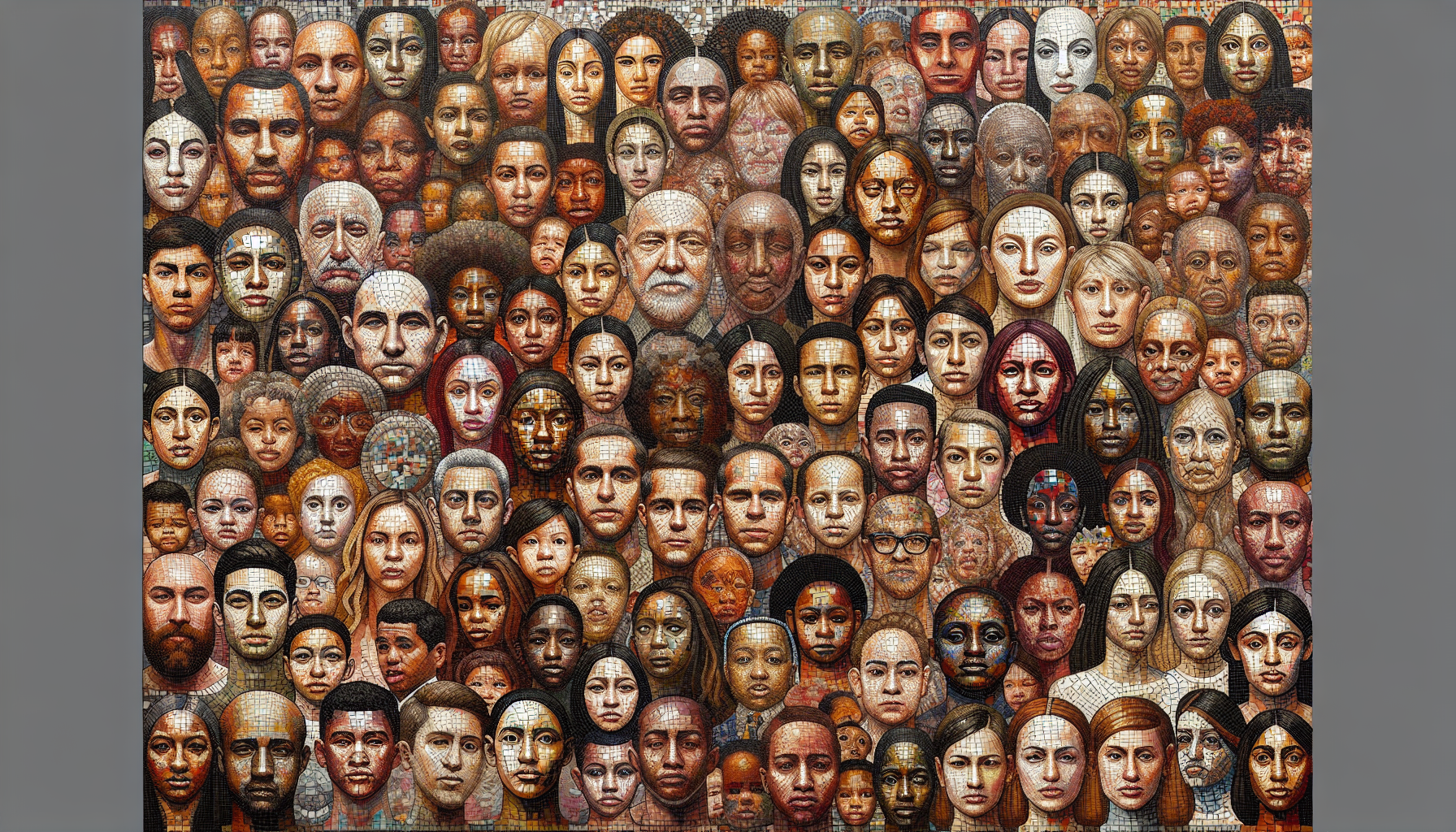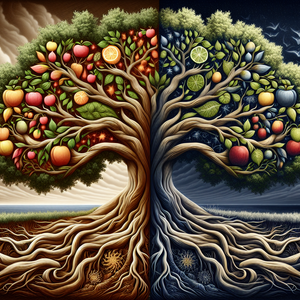Culinary Journeys: The Fusion of Israeli and Palestinian Cuisine

The culinary traditions of Israel and Palestine share deep historical roots. Staples such as olive oil, fresh vegetables, spices, and grains are foundational to both cuisines. Dishes like hummus, falafel, and tabbouleh are beloved across borders, yet each culture has distinctive interpretations and regional variations. For instance, the way falafel is prepared in Jerusalem may differ from that of Ramallah, with each version reflecting local preferences and cultural nuances. This shared culinary heritage sets the stage for chefs who are passionate about blending these traditions. Chef Moshe Basson, known for his innovative approach to Middle Eastern cuisine, emphasizes that food transcends politics. He states, "When people sit together at a table and share a meal, they connect on a human level that goes beyond their differences." This philosophy underscores the importance of food in bridging divides and creating a sense of community.
Spotlight on Chefs Bridging Cultures
Several chefs in the region are leading the way in creating dishes that honor both Israeli and Palestinian culinary traditions. Chef Einat Admony, an Israeli chef renowned for her modern take on Middle Eastern cuisine, often incorporates Palestinian flavors into her menu. Her restaurant, Balaboosta, features dishes like lamb shawarma with tahini sauce, which pays homage to both cultures. On the Palestinian side, Chef Tareq Abu Jaber is celebrated for his commitment to preserving traditional flavors while also embracing modern cooking techniques. His restaurant, Al-Khalil, offers a menu that celebrates the richness of Palestinian cuisine, while also collaborating with Israeli chefs for special events that highlight the fusion of their culinary worlds. These chefs not only create delicious meals but also foster an environment of collaboration, inviting chefs from both sides to share their expertise and celebrate their commonalities. Events such as "Taste of Unity," where Israeli and Palestinian chefs come together to create a multi-course meal, emphasize that food can be a bridge for dialogue and understanding.
The Role of Food in Cultural Exchange
Food serves as a cultural ambassador, inviting people to engage with and appreciate different traditions. In the bustling markets of Jerusalem, for instance, vendors from both communities sell similar products, fostering interaction and camaraderie among shoppers. The act of sharing recipes, cooking techniques, and culinary stories creates a sense of community that transcends political barriers. Moreover, social media plays a crucial role in amplifying these culinary narratives. Platforms like Instagram and TikTok allow chefs to showcase their dishes, share recipes, and connect with a global audience. As chefs post about their culinary creations that blend Israeli and Palestinian influences, they invite others to explore and appreciate the beauty of fusion cuisine. This digital engagement not only highlights the creativity of these chefs but also brings their messages of unity to a broader audience.
Challenges and Opportunities
While the culinary collaboration between Israeli and Palestinian chefs is promising, it is not without challenges. The political tensions and conflicts in the region can sometimes overshadow these efforts. Chefs may face criticism or backlash for their collaborations, highlighting the societal divisions that still exist. However, many chefs are undeterred, believing that their work can contribute to a more peaceful future. For instance, during the COVID-19 pandemic, many chefs pivoted to community engagement, providing meals for those in need, regardless of their background. This initiative not only highlighted the importance of solidarity but also reinforced the idea that food can unite people in times of crisis. Such acts of kindness and community support illustrate the profound impact of culinary initiatives that prioritize connection over division.
The fusion of Israeli and Palestinian cuisine illustrates the potential for culinary arts to transcend borders and foster understanding. Through the innovative work of chefs who blend flavors and techniques from both cultures, food becomes a powerful vehicle for dialogue and connection. As culinary journeys continue to evolve, they offer hope for a future where shared meals and mutual respect can pave the way for peace and reconciliation in a complex region. By celebrating their rich culinary heritage while embracing collaboration, both Israelis and Palestinians can find common ground on their plates, proving that food can indeed be a force for unity. In a world often divided by politics and conflict, the kitchen remains a sanctuary where flavors meet, and humanity prevails.
Culinary Arts Instructor
Culinary schools, community centers, and cultural organizations
Responsibilities
Design and implement curriculum that focuses on Middle Eastern cooking techniques and flavors.
Conduct hands-on cooking classes that emphasize the cultural significance of dishes from both Israeli and Palestinian cuisines.
Required Skills
Extensive knowledge of Middle Eastern culinary traditions.
Strong communication skills to effectively teach and engage students.
Food Writer/Food Journalist
Magazines, newspapers, and online food publications
Responsibilities
Research and write articles highlighting culinary collaborations, cultural significance, and the stories behind fusion cuisine.
Conduct interviews with chefs and food experts to provide insights into the culinary landscape of Israel and Palestine.
Required Skills
Excellent writing and storytelling abilities.
Familiarity with food culture and a passion for culinary arts.
Culinary Event Coordinator
Event planning firms, cultural organizations, and restaurants
Responsibilities
Plan and organize food events that bring together chefs from diverse backgrounds to showcase fusion dishes.
Collaborate with local restaurants and cultural organizations to create events that promote understanding through food.
Required Skills
Strong organizational and project management skills.
Experience in hospitality or event planning, with a focus on culinary events.
Ethnic Cuisine Chef
Restaurants, catering companies, and food trucks specializing in ethnic cuisines
Responsibilities
Develop and prepare a menu that creatively merges Israeli and Palestinian culinary traditions.
Source ingredients that reflect the authenticity and flavors of both cultures while innovating new dishes.
Required Skills
Proficient in various cooking methods and techniques specific to Middle Eastern cuisine.
Creativity in flavor pairing and presentation.
Social Media Food Influencer
Freelance or partnerships with culinary brands, restaurants, and food-related startups
Responsibilities
Create engaging content that promotes the beauty of Israeli and Palestinian fusion cuisine through recipes, cooking tutorials, and cultural stories.
Collaborate with chefs and restaurants to showcase their dishes and culinary philosophies on social media platforms.
Required Skills
Strong photography and videography skills to capture food visually.
Knowledge of social media trends and audience engagement strategies.


